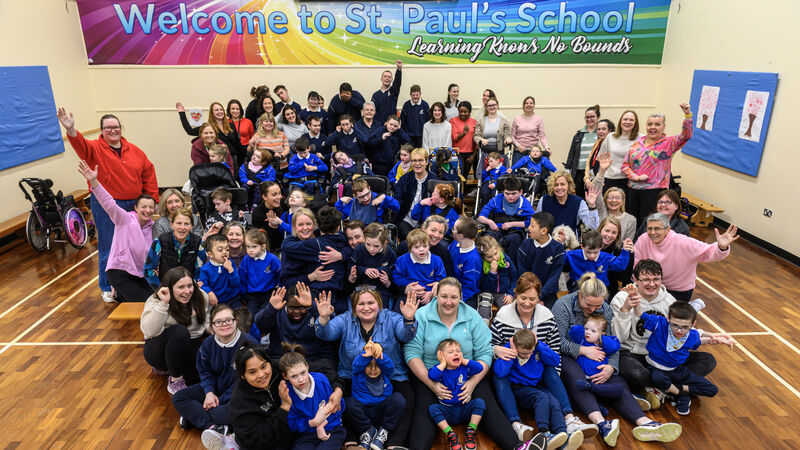Why a €200k donation is doing what the Government won’t for Cork’s most vulnerable children

Anne Hartnett with the assistance dog Iggles, staff and pupils of St. Paul's School, Montenotte, Cork, celebrating an anonymous €200k donation to the school. Picture: Dan Linehan
“To get the good news was like a ray of sunshine,” principal Anne Hartnett said after €200,000 was donated anonymously to St Paul’s special school in Cork.
The donor read in a newspaper that the school was struggling to provide therapists to over 95 children there and reached out to help.













